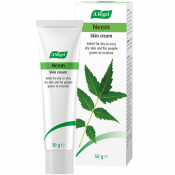What happens to your skin during an allergic reaction?
Allergies are becoming an increasingly common problem in today’s society – some figures estimate that cases of allergies have been steadily increasing for the past thirty years, and now as many as 1 in 3 people living in the UK could be suffering from some type of allergy.1 There are a number of theories as to why cases could be increasing – there are those who blame atmospheric pollution whilst others point the finger at society’s fixation with hygiene – but what I’m interested in exploring today is how your skin responds to these allergens.
What is an allergic reaction?
Your immune system is essentially responsible for protecting your body from bacteria, germs and other viruses, working quickly to eliminate any potential threats. However, an allergic reaction occurs when your immune system mistakes a harmless substance (such as pollen, animal dander or dust) as a pathogen. When this happens, it will respond to this ‘threat’ by producing more IgE proteins to attach to the allergen and it will flood your bloodstream with inflammatory chemicals such as histamine.
It is these chemicals that are the primary cause of most of your typical allergy symptoms; histamine can inflame the mucous membranes in your nose and throat, encouraging the secretion of thick, sticky mucus, thus leading to sore sinuses, nasal congestion and a runny nose. As unpleasant as these symptoms can be, though, many people also notice that their skin appears to flare-up during this time. Below I’m going to cover just a few of the main reasons why.
5 common ways allergies impact your skin
1 –Your blood vessels will dilate
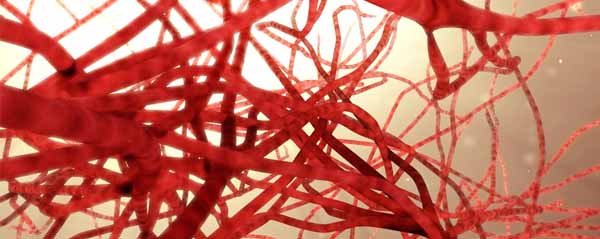
One of the main actions of histamine is to dilate your blood vessels, ensuring that plenty of white blood cells can reach the affected area. If you’re suffering from a virus or have been injured, this can be a good thing, but when it comes to an allergic reaction, this dilation of the blood vessels can increase their permeability. This means that blood and other fluids can pass through the wall of the vessel, leaking into the surrounding skin tissue. Not only does this intensify any existing inflammation, these fluids can cause irritation and itchiness, as I will discuss shortly. In particular, this can be a real problem if you suffer from a condition like rosacea, where a widening of the blood vessels can act as a trigger for a flare-up.
2 – Your skin may start to itch
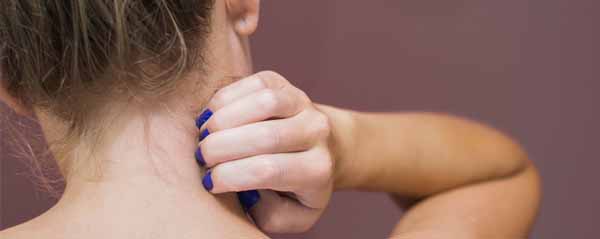
Itchy skin is one of the primary ways allergies impact your skin and it can be one of the more uncomfortable symptoms. Histamine is once again to blame here as this inflammatory chemical can stimulate the C-fibres that exist in human skin. What exactly are C-fibres? Well, C-fibres are a type of nerve fibre that help to conduct nerve impulses to the brain and the rest of your body. When these are triggered, they create that infamous itching sensation which will have you scratching at your skin. Unfortunately, this action won’t help to give you any long-term relief and can actually cause more harm than good, potentially damaging your skin cells and weakening your epidermis. The good news is that there are things you can try to ease the itching, such as our soothing Neem Cream.
My Top Tip: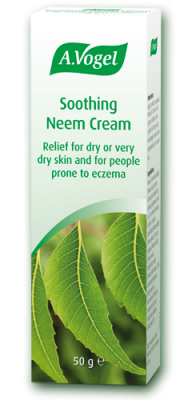 This soothing Neem Cream is ideal for itchy or irritated skin, helping to relieve signs of dryness and alleviate flare-ups. This soothing Neem Cream is ideal for itchy or irritated skin, helping to relieve signs of dryness and alleviate flare-ups.
|
3 – Your skin can become drier
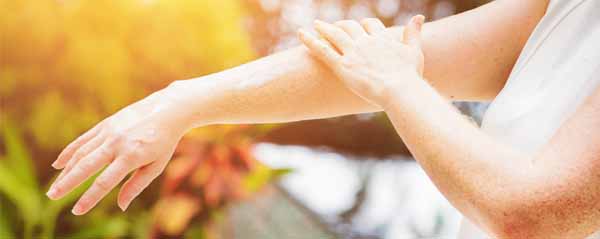
As I’ve just discussed, itchiness is one of the main problems attributed to allergies and sometimes the temptation to scratch can be too overwhelming. However, when you scratch your skin you are causing dryness and risking potential damage. Dry skin can be difficult to manage for a number of reasons; when your skin is dry it’s more vulnerable to irritation and pathogens find it easier to permeate your epidermis. This can then cause a vicious cycle, making your skin more susceptible to allergens and, thus, more vulnerable to harm.
It’s also important to recognise that, when your skin is dry, it can be more vulnerable to flare-ups which is why eczema sufferers often find their skin breaks out during the summer months, as I discuss in my blog, ‘Why does hayfever make eczema worse?’. Once again, there are a number of steps you can take to tackle dry skin – our Neem Cream is a good solution here or you could check out my top 10 tips to comfort dry skin here.
4 – You could find that hives start to appear
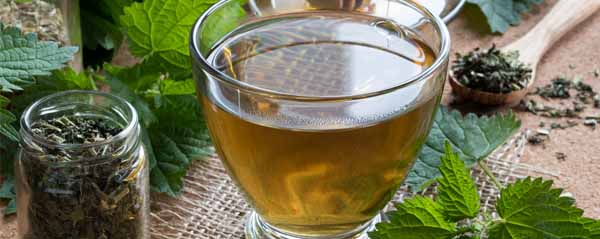
Hives usually manifest as a swollen, red rash, sometimes dotted with red bumps or plaques. Often they are a short-term symptom, generally lasting no more than 6 weeks, but in that time they can cause a considerable amount of discomfort. They usually cause symptoms such as itchiness or a burning sensation and can sometimes sting. Although hives aren’t exclusively associated with allergies, they can appear due to histamine increasing the permeability of your blood vessels, as I discussed earlier. When the blood from these vessels leaks into the tissues surrounding your skin, hives can appear as a consequence.
While there are home and herbal remedies you can try, such as our soothing Neem Cream, if you find that stinging nettles are the cause of your hives, there is another solution. Just as nettles can cause hives to appear, they can also help to aid your recovery due to their natural antihistamine properties. This doesn’t mean you should go and apply stinging nettle leaves directly to your skin (please do NOT try this!) but you could try drinking some nettle tea or taking a stinging nettle tincture.
5 – You may notice the skin surrounding your eyes becomes puffier
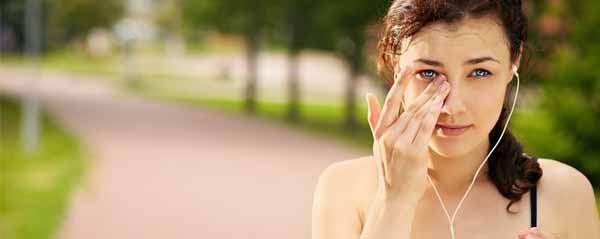
Itchy, watery and sore eyes are a common occurrence during an allergic reaction, but you may have noticed that during this time the skin surrounding your eyes appears noticeably puffier. This is because the skin here is extremely delicate and actually lacks collagen, your skin’s key structural protein, and elastin. This means it’s extremely vulnerable to irritation so, when histamine is released, the combination of the tiny blood vessels in this area dilating and the rush of fluids can cause the skin to swell.
What makes matters worse is that it takes time for the fluid accumulated in the tissues here to be reabsorbed, so this symptom can linger for quite a few hours. The good news, though, is that over at A.Vogel Talks Eyes, there is plenty of information on how to ease puffy eyes, including this blog ‘7 simple tips to get rid of puffy eyes’ which might prove useful for you to read!
What can you do to protect your skin from allergens?
How you approach protecting your skin really depends on how much knowledge you have about the allergen causing the irritation.
If you suffer from seasonal allergies, such as hayfever, then you usually know roughly when your skin will be most vulnerable and you can prepare in advance. You could start taking our hayfever remedy Pollinosan (which can be used for symptoms of allergic rhinitis too!) as the hayfever season approaches to help manage any potential symptoms, plus you could take steps to manage your contact with pollen. Our Hayfever Advisor Louise goes into more detail in her blog, ’10 hayfever hacks you need to know about.’
My Top Tip: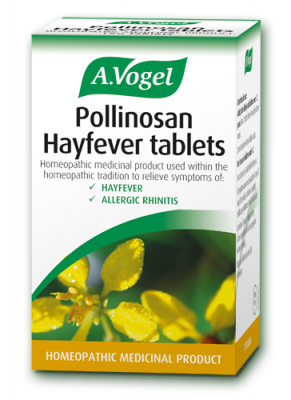 Pollinosan is a non-drowsy remedy prepared using 7 tropical herbs in varying homeopathic potencies. Not only does it help to provide relief from hayfever symptoms, it can also be used to treat allergic rhinitis too! Pollinosan is a non-drowsy remedy prepared using 7 tropical herbs in varying homeopathic potencies. Not only does it help to provide relief from hayfever symptoms, it can also be used to treat allergic rhinitis too!
|
However, what if you’re not too sure what could be causing your skin to react this way? What if you’re allergic to something more specific such as a fragrance, or a specific type of plant? Well, these cases can be trickier and sometimes it comes down to a process of elimination. If you suspect that a particular product or substance is affecting your skin, I would first try eliminating it from your routine so you can get a clearer picture of what is going on. You can learn more about what could be causing your potential skin irritation in my blog, ‘What could be causing your skin irritation?’







